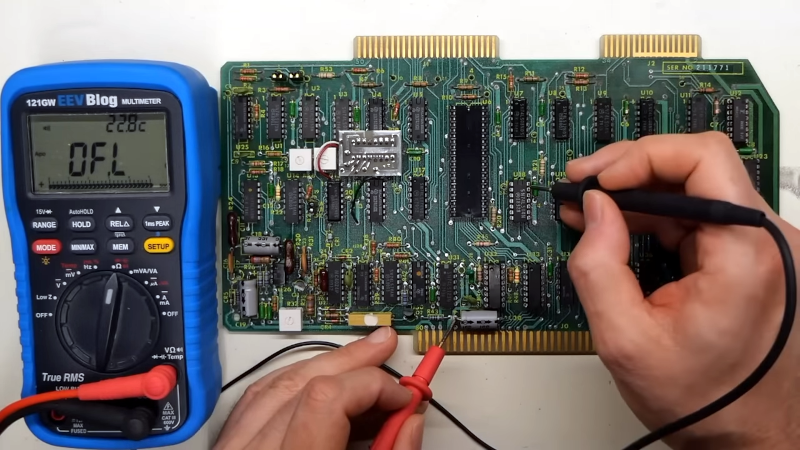
A lot of people had a Radio Shack TRS-80 Model I. This was a “home computer” built into a keyboard that needed an external monitor or TV set. Later, Radio Shack would update the computer to a model III which was a popular “all in one” option with a monitor and even space for — gasp — floppy disks. But the Model II was not nearly as common. The reason? It was aimed at businesses and priced accordingly. [Adrian] got a Model II that was in terrible shape and has been bringing it back to life. You can see the video of how he’s done with it, below.
The Model II was similar to the older “Trash 80” which had been used — to Radio Shack’s surprise — quite often by businesses. But it had more sophisticated features including a 4MHz CPU — blistering speed for those days. It also had an 80×25 text display and a 500K 8-inch floppy drive. There were also serial and printer ports standard.
There were a few interesting features. The floppy drive’s spindle ran on AC power and if the computer was on, the disk was spinning. In addition, there was bank switching so you could go beyond 64K and also you didn’t have to share your running memory with the video display. In theory, the machine could go beyond 64K since half the memory was bank switchable. In practice, the early models didn’t have enough expansion space to handle more than 64K physically.
The machine had to have a floppy to boot and in a previous video, the computer failed to boot correctly. Given it was stored poorly for years, that isn’t too surprising. You’ll get to watch the machine being torn down, schematics examined, and ICs tested. However, eventually, the computer seemed to fix itself. If you have any experience with this kind of thing, you can guess what happens next. It fails again, of course.
Theorizing that the parts that tested good were temporarily healed by heating, [Adrian] replaced the chips, but it took a bit of work to find out it was a bad disk controller. Once he knew the bad area, it was relatively easy to find the bad chips.
If you have fond memories of the model I, why not build one? We love seeing these old machines restored instead of gutted, although sometimes there is little choice.
0 Commentaires